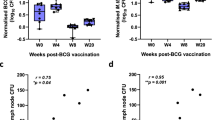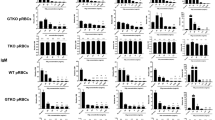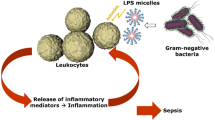Abstract
THE capillary macrophage migration inhibition test1,2, one of the few available satisfactory methods for the in vitro study of delayed hypersensitivity, has largely remained an animal experimental technique, for a ready source of human macrophages has not been available. The usefulness of the method has thus been limited. Attempts by Lawrence and David3 to use human, blood cells were fraught with technical difficulties and therefore apparently abandoned. The subsequent isolation of migration inhibition factor4,5 diverted attention to the study of its properties. For example, when the factor was obtained from sensitive human lymphocytes it could inhibit guinea-pig macrophages6, but exploitation of this property did not increase significantly the study of human delayed hypersensitivity. The absence of sufficient macrophages (monocytes) in human peripheral blood for the test to be carried out successfully was overcome by culturing lymph node cells for 72 h and then performing the usual capillary migration test7. None of these modifications has had wide application because of numerous practical difficulties brought on by further complication of an already difficult technique. The case of peripheral blood cells8 failed to stand up to critical testing9. We wish to make a preliminary report of a successful method for the capillary migration inhibition test using guinea-pig macrophages and human peripheral blood lymphocytes. Fuller details of the technique, in view of its possible wide application in the study of human disease, will be published later.
This is a preview of subscription content, access via your institution
Access options
Subscribe to this journal
Receive 51 print issues and online access
$199.00 per year
only $3.90 per issue
Buy this article
- Purchase on Springer Link
- Instant access to full article PDF
Prices may be subject to local taxes which are calculated during checkout
Similar content being viewed by others
References
George, M., and Vaughan, J. H., Proc. Soc. Exp. Biol. and Med., 111, 514 (1962).
David, J. R., J. Exp. Med., 122, 1125 (1965).
Lawrence, H. S., Fed. Proc., 27, 3 (1968).
Bloom, B. R., and Bennett, B., Science, 153, 80 (1966).
David, J. R., Proc. US Nat. Acad. Sci., 56, 72 (1966).
Thor, D. E., Juveziz, R. E., Veach, S. R., Miller, E., and Dray, S., Nature, 219, 755 (1968).
Thor, D. E., Fed. Proc., 27, 16 (1968).
Søborg, M., Acta Med. Scand., 184, 135 (1968).
Kaltreider, H. B., Soghor, D., Taylor, J. B., and Dekev, J. L., J. Immunol., 103, 179 (1969).
Coulson, A. S., and Chalmers, D. G., Lancet, i, 468 (1964).
Author information
Authors and Affiliations
Rights and permissions
About this article
Cite this article
RAJAPAKSE, D., GLYNN, L. Macrophage Migration Inhibition Test using Guinea-pig Macrophages and Human Lymphocytes. Nature 226, 857–858 (1970). https://doi.org/10.1038/226857a0
Received:
Issue Date:
DOI: https://doi.org/10.1038/226857a0
This article is cited by
-
Rat liver protein linking chemical and immunological detoxification systems
Nature (1992)
-
Unilateral hydrocephalus due to obstruction of the foramen of monro: Another complication of intrauterine mumps infection?
European Journal of Pediatrics (1982)
-
Immunoglobulin Nature of PPD Receptors on Human T Lymphocytes
Nature New Biology (1973)
Comments
By submitting a comment you agree to abide by our Terms and Community Guidelines. If you find something abusive or that does not comply with our terms or guidelines please flag it as inappropriate.



